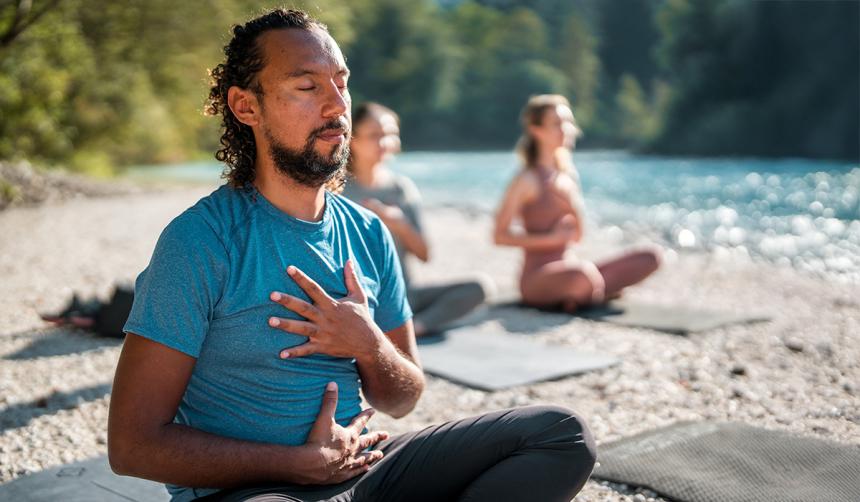4 Types of Meditation for Stress and Anxiety

Meditation is practice that helps you develop internal focus, control thoughts, relax, find inner peace, concentrate and ease stress. Meditating regularly can train your brain to be more aware of actions and emotions and help you calmly process negative thoughts without judgment.
When you think about meditation, sitting in a lotus position probably comes to mind. But you don’t have to sit on the floor. There’s no right or wrong way to meditate. You can sit in a chair, kneel, stand, walk or lie down while meditating. Regardless of the position you choose, make sure your spine is straight, shoulders down and head and neck are aligned with your spine.
There also are different types of meditation – seven to be exact. Instructors can guide you through Kundalini yoga/meditation and Zen meditation and you can take a course
to learn Transcendental meditation. The following four types you can try at home.
Mindfulness Meditation
Many forms of meditation include an element of mindfulness—a type of mental training to help you focus on the present moment and cope with negative thoughts and fears. Jon Kabat-Zinn, founder of the Center for Mindfulness in Medicine, University of Massachusetts Medical School, pioneered the practice of mindfulness for health. Author
of several books on the practice, including bestselling introductory guide Mindfulness for Beginners, Kabat-Zinn describes mindfulness as “the art of non-doing and really cultivating just being” instead of our brains being mentally consumed “on a path to losing our minds in the frenetic and hectic lives we lead.”
Metta Meditation
The goal of metta meditation, also known as loving-kindness meditation, is developing a loving attitude toward everything and everyone in your life. This includes sources of stress, difficult people and people who have hurt you. It’s particularly helpful if you frequently experience frustration, anger, conflict and resentment. The practice involves sitting quietly, breathing deeply and repeating mantras of kindness and love to specific people and things until you feel compassion for others and for yourself.
Awareness of Breath Meditation
This form of meditation involves acutely focusing on your breath, making sure you’re breathing slowly, rhythmically and with intention, so that you can ignore, even banish negative thoughts. Focusing on your breath also helps you become more flexible emotionally, improve your concentration and ease anxiety.
Progressive Meditation
This form of meditation, also called body-scan meditation, is particularly effective for coping with pain and general anxiety because it helps you relax. Practice progressive meditation by laying still and visualizing the tension releasing from each part of your body, top to toe.
